- Home
- James Rollins
The Demon Crown: A Sigma Force Novel Page 7
The Demon Crown: A Sigma Force Novel Read online
Page 7
The brightness briefly revealed a dark cloud looming above the forest, cresting high, like a black wave about to crash over the town of Hana.
Palu looked to the haole at his side, but Gray could only state the obvious.
“It’s too late. They’re already here.”
SOLDIER
With powerful beats of her four wings, the soldier hovered at the head of the swarm. Her hum carried back to the others, full of warning as she assessed the threat and landscape ahead. Rows of tiny spiracles—pinpoint holes along thorax and abdomen through which she breathed—vibrated angrily, casting out a whistling cry to her caste.
Fellow soldiers gathered and packed the swarm’s vanguard, communicating by sound and pheromone. All their antennae pointed forward, swiveling at their bases, testing the scents carried on the breeze.
Sweetness . . .
Flesh . . .
Salt . . .
They shared what they learned.
As she waited with the others, she bent the eleven joints at the ends of her antennae, weaving a map of those scents inside her brain. A billowing force built before her, full of the promise of sustenance for the swarm. A cloud of odors rose before her.
The mélange of those smells stoked her hunger, which in turn triggered a surge of aggressive hormones. Muscles contracted in her abdomen, causing sharp lances to slide along the grooves on either side of her stinger, honing her weapon.
She waved her antennae a final time and focused on the source of this delicious smoke.
Instinct demanded her to possess it.
Her sisters felt the same.
Signaling one another, the soldiers plunged as one from the swarm’s edge and dove toward that source. As they fell, they drew closer together, becoming a dark arrow pointed toward their goal.
Other senses continued to draw information, refining what she knew.
Large membranes over hollow pockets on either side of her head vibrated to the myriad sounds that spiked through the fog of odors. In turn, the swarm’s angry buzzing was cast forth, only to rebound back with more details of the landscape ahead. With each wingbeat, she learned more and shared with the others, as they did with her. Structures and shapes began to coalesce, constructed of sound and echo.
As they raced below, she became both fighter and army, both one and many. She closed in on the source of those odors. Propelled by a millennia-old drive for territory, she would not let anything stop her. Ancestral memory, imprinted in her genetic code, erased fear. Her ancient sisters had felled greater foes than any found in this new land so far.
Still, she brought to bear more of her senses, readying herself for the battle.
Two large black eyes—each fractured into several hundred hexagonal facets—studied what lay ahead. She took in color and shape, but her eyes had evolved for one keen purpose: to detect motion.
Her gaze fixed to each twitch and flail around her as she whisked through a pall of scents and odors. Everything was in motion, but her brain noted vectors and tides within this chaos. It allowed her to rank the dangers ahead.
She ignored the forces that fled from her path.
They were no immediate threat.
Instead, she knew she must clear away anything that blocked her path, that challenged her dominance. Her wings blurred faster, fueled by aggression, daring any to defy her from reaching her goal.
But her eyes remained alert for the greatest threat.
Movement caught her attention—a flow of motion toward her.
She focused on this coming contest, whipping her anger to a boil. An image of this challenger pushed through the bedlam of her senses. It was still more shadow than substance.
She plunged toward it, while still attuned to the other soldiers. Her antennae noted a draft of distress, a flare of pheromone as one of her caste was trampled to her left. Immediately, others raced along the trail of pheromone, drawn by the death, intending to multiply their strength and poison to eradicate whatever killed one of their own.
She ignored it, concentrating on the danger coming straight at her.
The challenger’s image grew clearer.
She assessed the figure and hunted for the best place to attack it. She smelled the salt of its sweat and blood, but instinct guided her toward the carbon puffing from its breath. Eons of ingrained experience had taught her to focus her poison there.
She curled her abdomen and readied her stinger.
The threatening form rushed toward her.
She lowered her head, arcing her wings higher, and dove to attack.
7
May 6, 8:22 P.M. HST
Hana, Island of Maui
As Gray ran, he snapped down the face shield of his motorcycle helmet—and not a moment too soon. A large wasp struck the visor hard enough to make the polycarbonate ring. It clung there with its six jointed legs, an inch from his nose. Its wings beat in a furious blur. Its armored abdomen jabbed at the shield, over and over again, hard enough to be heard, like a determined woodpecker on a tree trunk.
Gray stared cross-eyed for a moment, assessing the enemy at close range.
A deep-seated horror froze him momentarily, as if something ancient in his genetic code responded to this threat. And maybe it had. He had read how phobias could change a person’s DNA through epigenetics, passing a fear from one generation to another, as a survival instinct against deadly predators.
Gray shuddered at the sight of the sharp stinger, easily a quarter-inch long, striking his visor.
Before he could move, a thick glove swatted at his helmet and knocked the wasp away. “Here!” He turned to find the fireman, Palu, standing there, holding out a silvery fire blanket. “Cover yourself and get to shelter!”
Gray took the lightweight fabric and wrapped it over his shoulders. With one hand, he clutched it to his neck. The blanket only draped to his knees, leaving his calves exposed, but it was better than nothing.
Palu had donned the rest of his full bunker gear. Besides his yellow trousers, turnout jacket, and helmet, he had pulled on a firefighting hood with a clear SCBA mask over his face, leaving little skin exposed. Hauling a white hose over one shoulder, he pointed his other arm toward the community health-care center.
“Go!”
Gray glanced in that direction. In the parking lot, the fire chief sat in his truck, a handheld radio at his lips. His voice boomed from his vehicle.
“SEEK IMMEDIATE SHELTER! WHEREVER YOU CAN. CARS, HOMES, THE COMMUNITY CENTER. GET OUT OF THE OPEN!”
The warning came too late. All around, people fled in every direction. It was pandemonium and bedlam, scored by Hawaiian music blasting from speakers at the ballpark. Screams and curses and crying added to the chorus.
A father ran past Gray carrying a small girl on his shoulder, waving an arm as wasps chased them. The child sobbed, both in panic and from a large red welt on her cheek. The man banged sidelong into a car, where a Good Samaritan inside risked opening the back door and hollered for them to get inside.
Similar scenarios broke out all around him as homes and stores gathered people inside, but there were too many still trapped in the park or streets. Bodies thrashed on the pavement. Parents huddled over their children, shielding them, as wasps hurled down.
The handful of emergency personnel on hand tried to help, dragging whom they could to safety, suffering for their efforts. But even they were too few to save so many.
Not that they were giving up.
“Go!” Palu ordered as he lowered the hose’s nozzle to his hips, which ran back to the engine tanker.
Down the street, another fireman had a hose attached to a fire hydrant, while a third rescue worker used a large wrench to unlock its flow. Water suddenly jetted high. The fireman waved the fierce column through the air, trying to drown the swarm out of the sky. But it was like fighting a wildfire with a squirt gun.
A cold certainty firmed inside Gray.
I need to buy them more time.
He gripped Palu’s
arm and shouted through his face shield. He pointed back to the engine tanker. “Is that a CAF system?” he asked.
Palu nodded.
As Gray had hoped, the fire engine was outfitted with compressed air foam, a thick knockdown retardant for fighting fires.
And hopefully more.
“Follow me!” Gray shouted.
As he turned away, he shook wasps from his silvery blanket. For now, the reflective fabric seemed to confuse the insects.
Let’s hope it stays that way.
Gray headed across Uakea Road toward where he’d dropped his bike. He prayed his plan would work—and that Palu’s hose had a long enough reach.
A glance over his shoulder showed the stout Hawaiian keeping pace with him, digging with his legs to haul the heavy white hose by himself.
Gray sped up, leaving Palu to follow as best he could. He reached the row of food trucks parked along Hauoli Road and crossed to one selling Hawaiian shave ice. It was shut tight with a pack of people and children inside.
“Can’t fit anyone else in here!” the proprietor yelled through the screen door. The mesh was thick with giant wasps, which appeared to be chewing at the fine wire, trying to get inside.
“That’s okay.” Gray panted and shifted over to a sliding service window. “Pass me your bottles of your syrup.”
“What?”
“Just do it!”
Gray glanced to a snow cone smashed in the grass a few yards away. A thick clot of wasps covered the slush.
The window slid open and someone handed him a bottle of blueberry-flavored syrup. He took it, twisted to the side, and threw the glass bottle like a Molotov cocktail. It flew high over a neighboring fence and exploded against the blacktop of an empty tennis court.
He turned back to the truck. “More!”
As those inside fed him bottle after bottle, he flung them into the same court. His efforts were soon rewarded. Wasps started flocking in that direction, drawn by the bright smell of sugar. Even the cluster crawling over the truck’s screen door gave up their efforts to chew their way inside and flung themselves off, buzzing toward the promise of an easier bounty.
Gray had hoped his lure would work. In the past, countless family picnics had been plagued by persistent hornets, wasps, and bees. He remembered his father once swallowing a yellow jacket that had fallen into his beer can. Gray suspected these creatures would be no different than their smaller cousins.
I mean, who doesn’t like dessert?
He didn’t know what fraction of the swarm would be diverted, but any portion he could pull away from attacking those left outside would buy time for emergency personnel to get additional people to shelter.
“That’s all I have!” the proprietor shouted, drawing back his attention.
Gray nodded and retreated a few steps, where he met Palu. “Wait until there’s a good swarm at the tennis court . . . then let ’em have it.”
“You are one lolo buggah,” Palu said in native pidgin. It was likely an insult but the big man’s wide grin suggested he was also impressed. “Now get your okole somewhere safe.”
“Not yet.” Gray stared at thick trails of wasps streaming high above.
Some of these bastards might not have a sweet tooth.
He hunched deeper into his silvery blanket and rushed to the next food truck. The side was painted with a dancing hot dog in a bun. He repeated the same maneuver, this time flinging torn-open packages of wieners into a nearby basketball court.
As he tossed the last of the dogs, a huge flume of white foam arced high to his right. He followed it back to where Palu was down on one knee, aiming the nozzle toward the tennis court. The fireman showered it across the hovering mass of wasps in the air, coating them heavily and driving them down to the thick carpet of churning bodies feasting amid the broken bottles of syrup.
Palu noted Gray’s attention. “I got it, brah! You go!”
Gray considered doing more, but he was dissuaded when a wasp latched on to his bare calf and stung him. He danced backward as if that would do any good. A second lance of pain brought him to his senses. He used his hiking boot to scrape it off and stamp it into the pavement, which only seemed to irritate it. It took grinding his heel atop its armored body to finally get a satisfying crunch.
By then, his other leg had become a tower of fire.
He tried to limp down the street, but whether the swarm noted his distress or were drawn by the odor of their crushed comrade, wasps pelted his fleeing form. His helmet rang with the impacts, and he felt strikes against the silvery blanket.
Agony climbed to his hip, making it harder to keep moving. His breath gasped between his clenched teeth. His vision wavered with tears. His entire world became pain. All he wanted to do was fall to the ground and scream.
Still, he forced himself to continue along the street, looking toward the community center’s glass doors. It seemed an impossible distance.
Never make it.
With each fiery step, he became more convinced. He no longer had control of his right leg. He fell sideways and caught himself on the hood of a Ford Taurus. Faces inside stared at him with concern, but they were packed tight in there.
No more room at the inn.
He pushed off to continue toward the community center. But he had exposed his hand for too long. Before he could tuck it under the blanket, a wasp landed on his wrist. Gray flung his arm, dislodging it before it could sting him, but he also lost his tenuous balance.
He toppled toward the curb, his arms swinging, which only drew more wasps.
He prepared to curl into a ball and do his best to pull his limbs under the fire blanket—but a force struck him in the middle of the back and rolled him across the pavement for a couple of panicked heartbeats.
He gasped as his vision whited out. It took him a full breath to realize his helmet’s visor was coated in foam, as was most of his body. Palu must have drenched him. An arm hooked his waist and pulled him upright.
Gray swiped his face shield to clear it.
Palu had hold of him. “We go!”
Gray felt no need to argue.
The fireman dragged him along, while still manning the hose with his other arm. As he half-carried Gray past the basketball court, he blasted foam across the wasps gorging on the piles of hot dogs over there.
Then the hose sputtered, and the arc of foam collapsed to a dribbling stream.
The tanker must be out of CAF.
Palu dropped the hose and firmed his grip on Gray, readying for a final run for the community center. Then a new noise intruded.
Sharp, insistent barking.
It drew both their attentions to the left. A scruffy terrier hid behind the baseball diamond’s home plate. A red leash ran back to a small boy crumpled on his side at the bottom of the backstop fence. His head lolled back, froth bubbling at the corners of his lips. His limbs twitched convulsively.
He was going into anaphylaxis.
Gray pulled in that direction, but the tall backstop blocked the way. They’d have to circle far around the fence to reach the child. Such a delay could mean his death, but Gray had to make the attempt.
Palu tried to restrain him—perhaps also recognizing the futility of this rescue attempt—then swore and followed Gray toward a gate fifteen yards away.
We’re never going to make it in time.
Already the boy’s limbs had stopped moving, and the dog’s barking had turned into a forlorn whine.
Gray tried to hurry, but adrenaline and desperation did little to dampen the fiery pain. Wasps bombarded their every step. Foam still coated most of Gray’s exposed limbs, but a determined wasp burrowed through the thick coating and stung the soft flesh behind his left knee.
Fresh agony flared, drawing a cry to his lips.
At his side, Palu did the same and swatted at his own belly. One of the bastards must have found its way under the hem of his fire jacket. Panicked, Palu let Gray fall and ripped open his coat and smacked the culprit off
his chest, but pain dropped him to his hands and knees.
They were both on the ground now. Gray’s limbs tremored and quaked, overwhelmed by the poison. He stared toward the boy. He caught the terrier’s desperate gaze, begging for help.
Sorry, buddy, there’s nothing—
Then movement drew his attention farther out into the diamond. A thick, snaking shadow uncoiled from the sky and draped down to the pitcher’s mound.
Gray blinked, trying to make sense of the sight.
A rope.
He stared up its length to a large shadow hovering high overhead. It was a helicopter running without lights, likely to avoid drawing the swarm.
A large shape plummeted down the line and reached the ground. A pair of boots pounded into the dirt mound. The giant figure straightened, decked out in a full wetsuit, including a hood, mask, even a tank on his back. Through the faceplate of the mask, a familiar grizzled face scowled at the situation.
Gray could not comprehend the sudden arrival of someone he knew, but it didn’t matter. He yelled with all his strength and pointed toward the backstop fence.
“Kowalski! Grab that boy!”
9:17 P.M.
Twenty minutes later, Gray stood behind the sealed glass doors of the community center. He stared out at the aftermath of the swarm’s attack. He counted more than a dozen bodies still sprawled in the outfield or soccer pitch. And there were likely more victims beyond his range of view.
Rescue teams had begun to arrive, dropping people in protective gear. But the situation remained dire. Eddying dark swirls of wasps still swept across the park and empty streets, while the larger shadowy mass of the swarm hung higher, hovering above.
Kowalski strode up to him. “Kid’s going to be okay according to the doc. Dog, too.”
“Thanks to your timely arrival.”
Gray pictured the gorilla of a man throwing the boy over his shoulder, then grabbing the dog by the scruff. He helped Gray and Palu over to the community health-care center, where a team of local nurses and doctors did their best with their meager resources to attend to the injured.

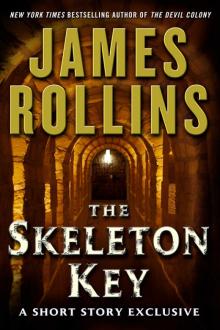 The Skeleton Key
The Skeleton Key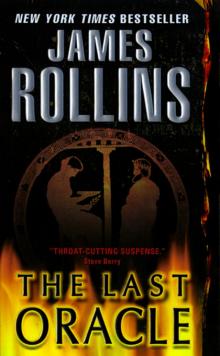 The Last Oracle
The Last Oracle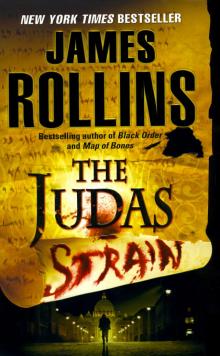 The Judas Strain
The Judas Strain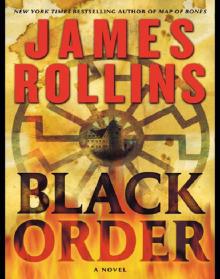 Black Order
Black Order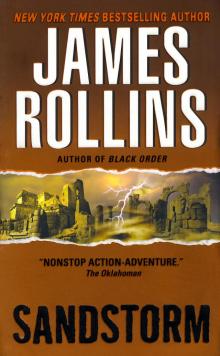 Sandstorm
Sandstorm Ghost Ship
Ghost Ship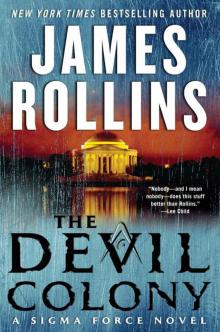 The Devil Colony
The Devil Colony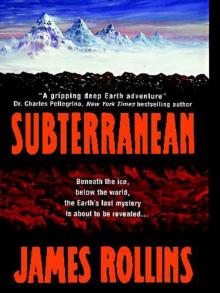 Subterranean
Subterranean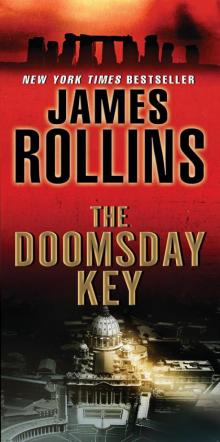 The Doomsday Key
The Doomsday Key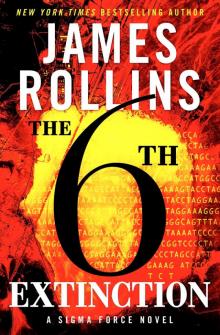 The 6th Extinction
The 6th Extinction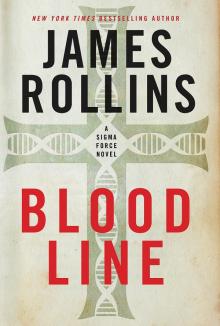 Bloodline
Bloodline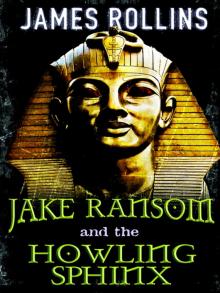 Jake Ransom and the Howling Sphinx
Jake Ransom and the Howling Sphinx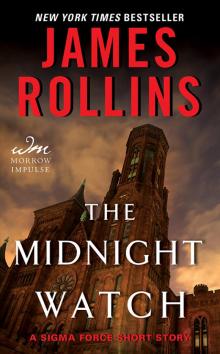 The Midnight Watch
The Midnight Watch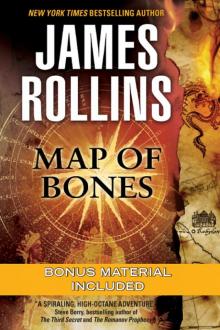 Map of Bones
Map of Bones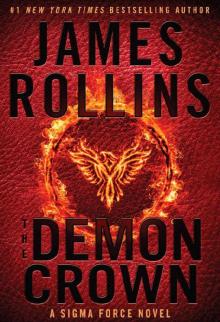 The Demon Crown
The Demon Crown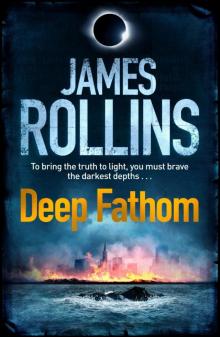 Deep Fathom
Deep Fathom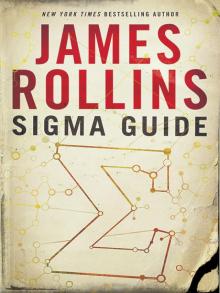 Sigma Guide
Sigma Guide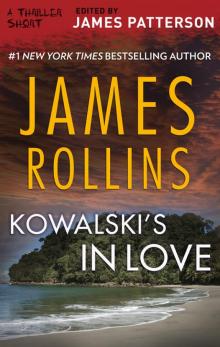 Kowalski's in Love
Kowalski's in Love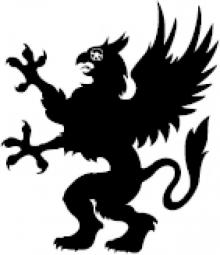 Jake Ransom and the Skull King's Shadow
Jake Ransom and the Skull King's Shadow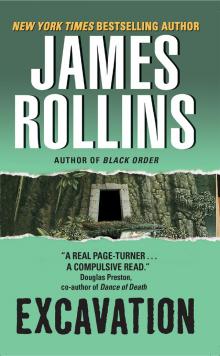 Excavation
Excavation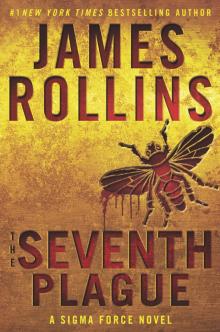 The Seventh Plague
The Seventh Plague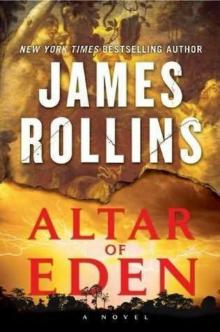 Altar of Eden
Altar of Eden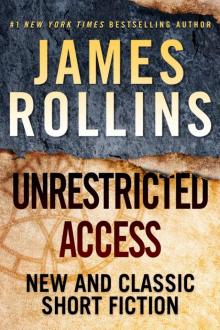 Unrestricted Access: New and Classic Short Fiction
Unrestricted Access: New and Classic Short Fiction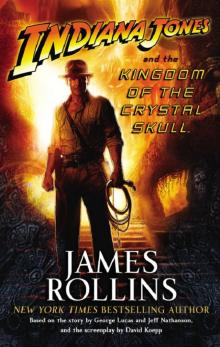 Indiana Jones and the Kingdom of the Crystal Skull
Indiana Jones and the Kingdom of the Crystal Skull Crucible
Crucible The Eye of God
The Eye of God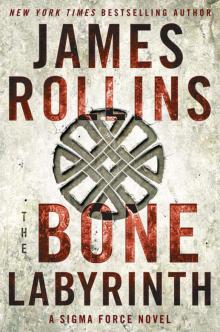 The Bone Labyrinth
The Bone Labyrinth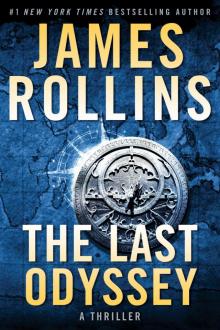 The Last Odyssey: A Thriller
The Last Odyssey: A Thriller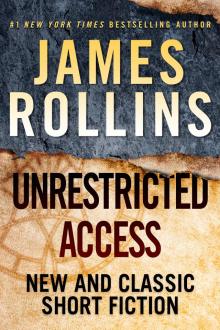 Unrestricted Access
Unrestricted Access Amazonia
Amazonia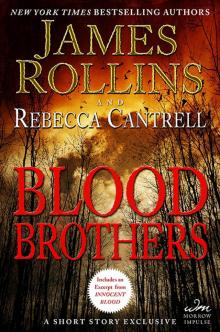 Blood Brothers: A Short Story Exclusive
Blood Brothers: A Short Story Exclusive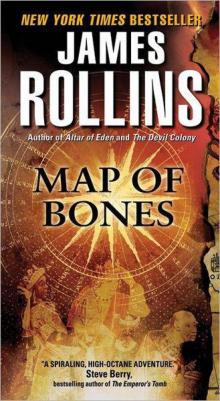 Map of Bones: A Sigma Force Novel
Map of Bones: A Sigma Force Novel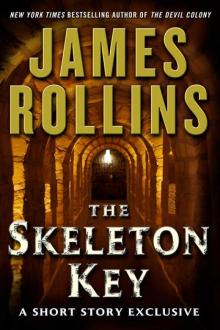 The Skeleton Key (sigma force)
The Skeleton Key (sigma force)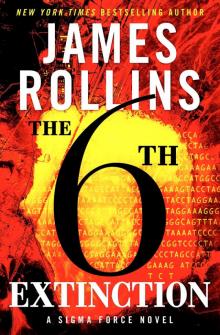 Sigma Force 10 - The Sixth Extinction
Sigma Force 10 - The Sixth Extinction Innocent Blood
Innocent Blood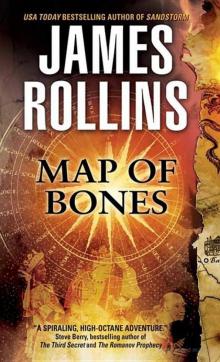 Map of Bones sf-2
Map of Bones sf-2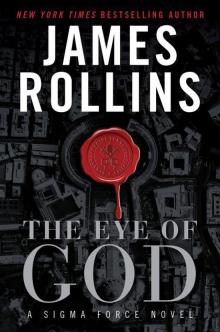 The Eye of God: A Sigma Force Novel
The Eye of God: A Sigma Force Novel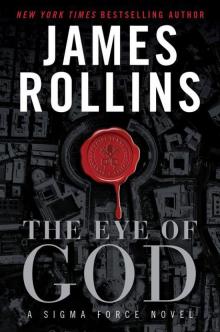 The Eye of God: A Sigma Force Novel sf-9
The Eye of God: A Sigma Force Novel sf-9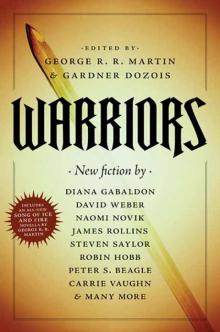 The Pit
The Pit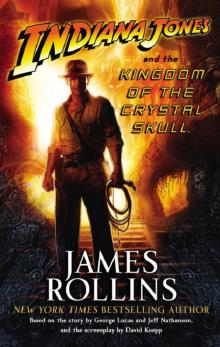 Indiana Jones and the The Kingdom Of The Crystal Skull
Indiana Jones and the The Kingdom Of The Crystal Skull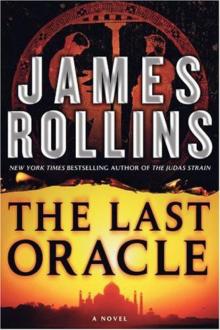 The Last Oracle (2008) sf-5
The Last Oracle (2008) sf-5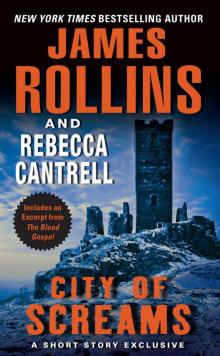 City of Screams
City of Screams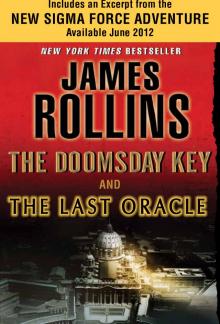 The Doomsday Key and The Last Oracle with Bonus Excerpts
The Doomsday Key and The Last Oracle with Bonus Excerpts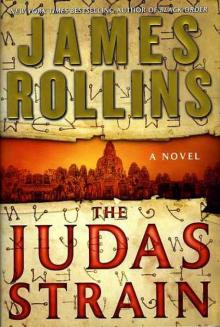 The Judas Strain sf-4
The Judas Strain sf-4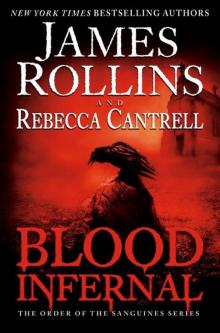 Blood Infernal
Blood Infernal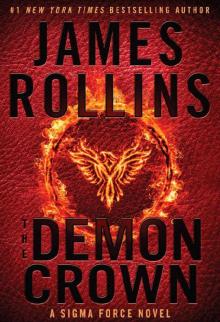 The Demon Crown: A Sigma Force Novel
The Demon Crown: A Sigma Force Novel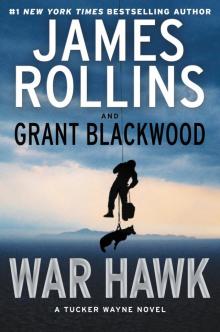 War Hawk: A Tucker Wayne Novel
War Hawk: A Tucker Wayne Novel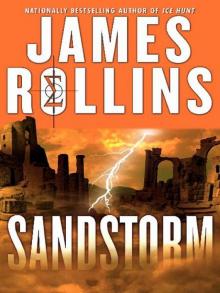 SANDSTORM sf-1
SANDSTORM sf-1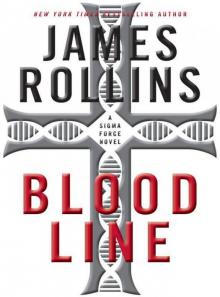 Bloodline: A Sigma Force Novel
Bloodline: A Sigma Force Novel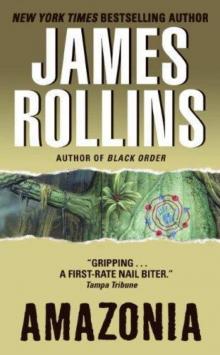 Amazonia: a novel
Amazonia: a novel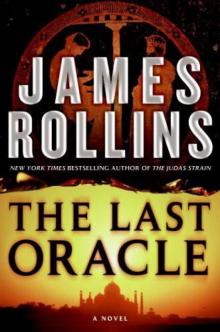 The Last Oracle: A Sigma Force Novel
The Last Oracle: A Sigma Force Novel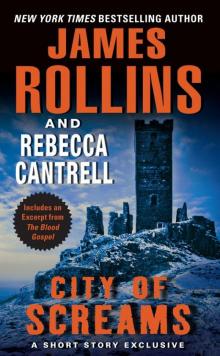 City of Screams (the order of the sanguines)
City of Screams (the order of the sanguines)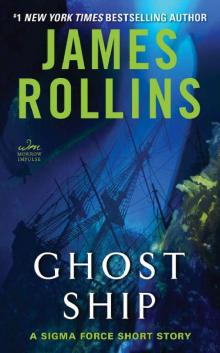 Ghost Ship: A Sigma Force Short Story
Ghost Ship: A Sigma Force Short Story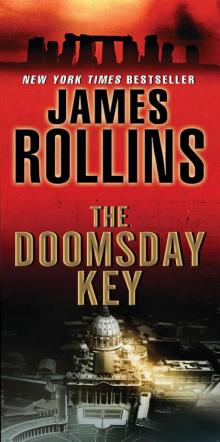 The Doomsday Key: A Sigma Force Novel
The Doomsday Key: A Sigma Force Novel